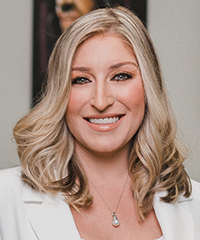
This article was originally published in the Sep/Oct 2021 issue of San Diego Lawyer Magazine.
By Renée N.G. Stackhouse
The social justice movements over the past year have led to increased discussions on diversity, equity, and inclusion (DEI). Organizations of all kinds have put renewed focus and resources into establishing DEI committees, policies, and practices. After months of self-examining, explaining, educating, drafting, and enacting, fatigue may be starting to set in. The term “Diversity Fatigue” originated in the 1990s and was used to describe the stress associated with management’s attempts to diversify the workforce through recruiting and retention efforts. Over recent years, it’s taken on an expanded meaning and is generally considered to be the exhaustion that arises from diversity and inclusion debates.
Why are we so tired?
We’re tired of fighting.
One of the biggest hurdles to overcome when we talk about increasing diversity and representation in the legal field is that we’re not talking about doing it at someone else’s expense. Diversity work is sometimes seen as a taking from one person to give to another and therefore it makes people shut down or fight. Ironically, this is the antithesis of diversity, equity, and inclusion work where the goal is to lift everyone up. We’re talking about a future where everyone can be treated with the same respect or given the same access to opportunities as those who have traditionally enjoyed that privilege.
Being the “only one” isn’t easy.
Being the only one necessarily implies you are alone. When Hon. Madge Bradley was appointed to the bench and became the first woman judge in San Diego, her male colleagues made the choice to hold meetings in locations she, as a woman, could not attend. She spent her career on the bench as the sole female among her colleagues and while she paved the way for future generations of women, being a trailblazer is difficult work. I heard someone say recently, “You can’t break glass ceilings without getting cut.”
The work adds up.
Look to see who is leading diversity work and it is predominantly minority lawyers; women, people of color, and LGBTQ+ individuals. With few exceptions (I’m looking at you, Wil Schooley, former Chair of the ABA Section of Civil Rights & Social Justice, and Chris Todd, Chair of the SDCBA Anti-Racism Subcommittee), the work is usually left to those whom it affects. That work is in addition to the efforts expended to navigate a profession that was not created for our success. Most women or people of color report that they feel the need to work twice as hard as their white, male counterparts to be considered equals. Add in the energy it takes to overcome daily and even hourly microaggressions, and to sometimes have to be retraumatized by the work, and it becomes physically, mentally, and emotionally exhausting.
Lip service takes a toll.
I will never forget talking to a colleague who was appointed the Chair of the Diversity Committee at his law firm … and was also the sole member of the Committee. Paying lip service to diversity, equity, and inclusion efforts but not implementing actionable policies or plans denigrates the work and devalues those who put unrequited effort into it.
It feels like there is a disconnect.
In 2020 the State Bar of California issued its First Annual Report Card on the Diversity of California’s Legal Profession. One of the first major headlines read that the state’s attorney population does not reflect its population. Leaders in DEI work have noted that, at least in California where the work has been ongoing for decades, the conversation really hasn’t changed.
How do we continue to do the work when we’re fatigued?
Wellness must be a priority.
If you’re tired, you need to give yourself the opportunity to rest. The world will not stop. The fight will not be lost. Make sure to eat, sleep, rest, and exercise in a way that helps you be as strong as you can be moving forward. Find a therapist to help you process your experiences in ways you might not be able to on your own. Take care of you.
Look for the teaching moment.
When you get pushback, channel your energy into education when you can. Being able to reverse roles with the person pushing back is an invaluable skill set to help us learn to better communicate with and educate those who might not agree with us. It also helps us to identify and overcome barriers to our message. Alternatively, sometimes knowing when to walk away is a win, too.
Remember your “why.”
Most importantly, we must remember our “why.” Your purpose and your motivation will help guide you through all the tough times and all the fatigue. As Jon Gordon said, “We don’t get burned out because of what we do. We get burned out because we forget why we do it.”